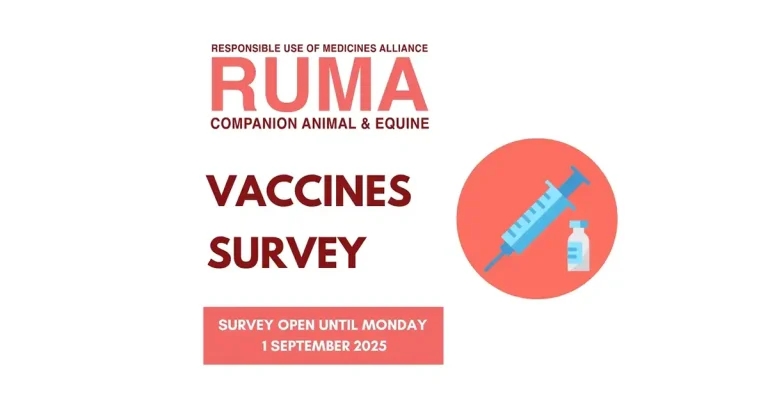11 Aug 2025
The companion animal and equine survey follows a similar questionnaire that focused on livestock and agriculture.

Veterinary professionals, SQPs, and others in the animal medicines industry have been invited to complete a new survey on vaccine availability.
The Responsible use of Medicines Alliance – Companion Animal and Equine (RUMA CA&E) launched the online questionnaire to improve understanding of UK vaccine supply issues and their impacts.
Small animal and equine vets, SQPs, retailers and wholesalers have until 5pm on Monday 1 September to complete the anonymous survey.
The survey includes questions on whether vaccine availability has worsened over the last five years, and if respondents have experienced any negative impacts on animal health as a result of shortages.
Vaccine shortages – and the potential impact they could have on antimicrobial resistance – have been of increasing concern in recent months.
RUMA Agriculture distributed a similar survey relating to the livestock and aquaculture sectors in May and June, which RUMA CA&E secretary general Steve Howard said received a “great response.”
He said his organisation hopes to receive a similar completion rate “to help provide a rounded picture across the entire profession.”
Mr Howard continued: “Vaccines play a key role in safeguarding the health and wellbeing of animals and limited or no supply, which is something that has been reported more frequently over the past few years across all sectors, can have widespread implications on animal wellbeing, medicines use and stewardship.”
RUMA CA&E chair Gwyn Jones added: “The negative impact of not having access to a stable and reliable supply of vaccines can’t be underestimated.
“Our work at RUMA CA&E centres around the responsible use of medicines to protect the health and wellbeing of companion animals and horses – if vaccines supply is unreliable then this will undoubtedly have consequences and could lead to the use of more antibiotics to treat conditions that would otherwise have been prevented with vaccines.”